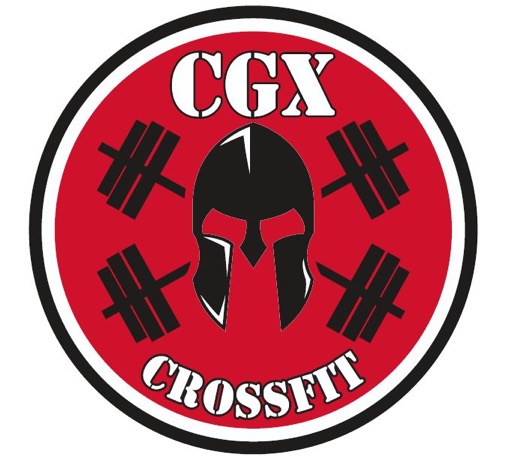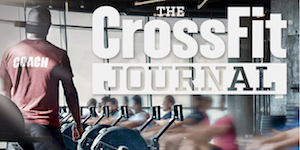The best thing you can do is read, search, and read some more before asking questions about CrossFit. Here are some questions we hear often from CrossFit newbies.
(The Q&A below are courtesy of CrossFit Inc.)
The "official" CrossFit warm-up is in the April 2003 CrossFit Journal.
3 rounds of 10-15 reps of:
Samson stretches (do the Samson stretch once each round for 15-30 seconds)
Overhead squats with broomstick or PVC
Sit-ups
Back extensions
Pull-ups
Dips
This warm-up is only a general idea, and coaches and athletes can easily adjust it or create their own versions in order to prepare them for a specific workout.
To optimize fitness, you will need to measure and record intake, evaluate performance and potentially change intake until the desired results are achieved. This approach to diet is no different than the approach to workouts.
To start, we recommend everyone give the baseline Zone Diet prescription a try for four weeks. Doing so will help you establish measurable, observable, repeatable data on your input (food) and output (performance).Once you have completed a minimum baseline term of four weeks, you may find you have to make small tweaks to the block prescription until you achieve your best performance.
This type of measured, systematic self-observation will be the best guide as to whether you should eat any type of food or implement any diet "strategy.”
For instance, experimentation will give you valuable information on grains, legumes, dairy and salt, and it can even help you plan the frequency and timing of your meals. You may need to your adjust your food intake for your lifestyle, goals, discipline, commitment level, etc.
You may choose to experiment with supplementation, post-workout nutrition, fasting, and so on. You may choose to include a cheat meal, eat more fat, consume more food, etc. Overall, diet is specific to each individual, and he or she can optimize diet by carefully tracking input and output.
Common CrossFit acronyms and abbreviations:
AMRAP: as many reps (sometimes rounds) as possible.
ATG: ass to grass.
BP: bench press.
BS: back squat.
BW (or BWT): bodyweight.
CFT: CrossFit Total, consisting of max squat, press and deadlift.
CLN: clean.
C&J: clean and jerk.
C2: Concept II rowing machine.
DL: deadlift.
FS: front squat.
GHD: the device that allows for the proper performance of a glute-ham raise, or a GHD sit-up.
GHR: glute-ham raise.
GHR or GHD sit-up: A sit-up done on the GHR or GHD machine.
GPP: general physical preparedness, aka "fitness."
GTG: grease the groove, a protocol of doing many submaximal sets of an exercise throughout the day.
H2H: hand to hand; refers to Jeff Martone's kettlebell "juggling" techniques (or to combat).
HSPU: handstand push-up.
HSQ: hang squat (clean or snatch).
IF: intermittent fasting.
KB: kettlebell.
KTE: knees-to-elbows.
Met-con: metabolic-conditioning workout.
MP: military press.
MU: muscle-up.
OHS: overhead squat.
Pd: pood.
PR: personal record.
PP: push press.
PSN: power snatch.
PU: pull-ups, possibly push-ups depending on the context.
Rep: repetition.
Rx'd, as Rx'd: as prescribed or as written. A WOD done without any adjustments.
RM: repetition maximum. Your 1RM is your max lift for 1 rep. Your 10 RM is the most you can lift 10 times.
SDHP: sumo deadlift high pull.
Set: a number of repetitions.
SPP: specific physical preparednesss, aka "skill training."
SN: snatch.
SQ: squat.
TGU: Turkish get-up.
TTB: toes-to-bar.
WO, sometimes W/O: workout.
WOD: workout of the day.
YBF: you'll be fine.

